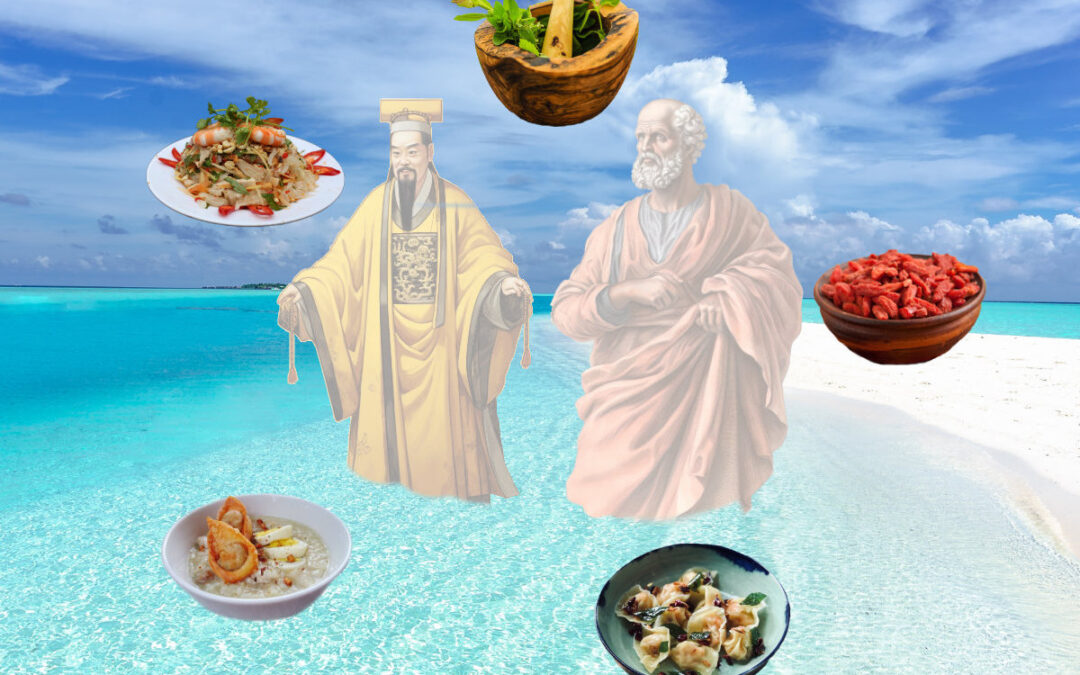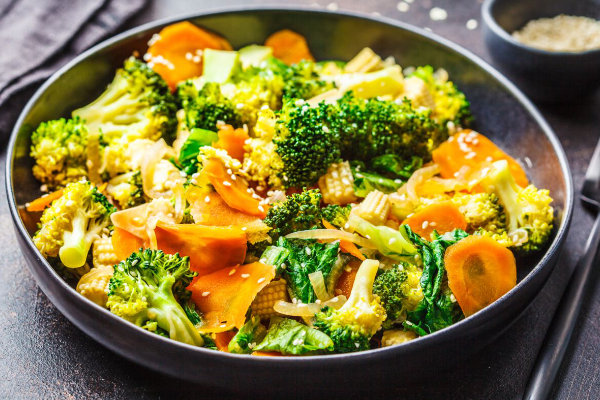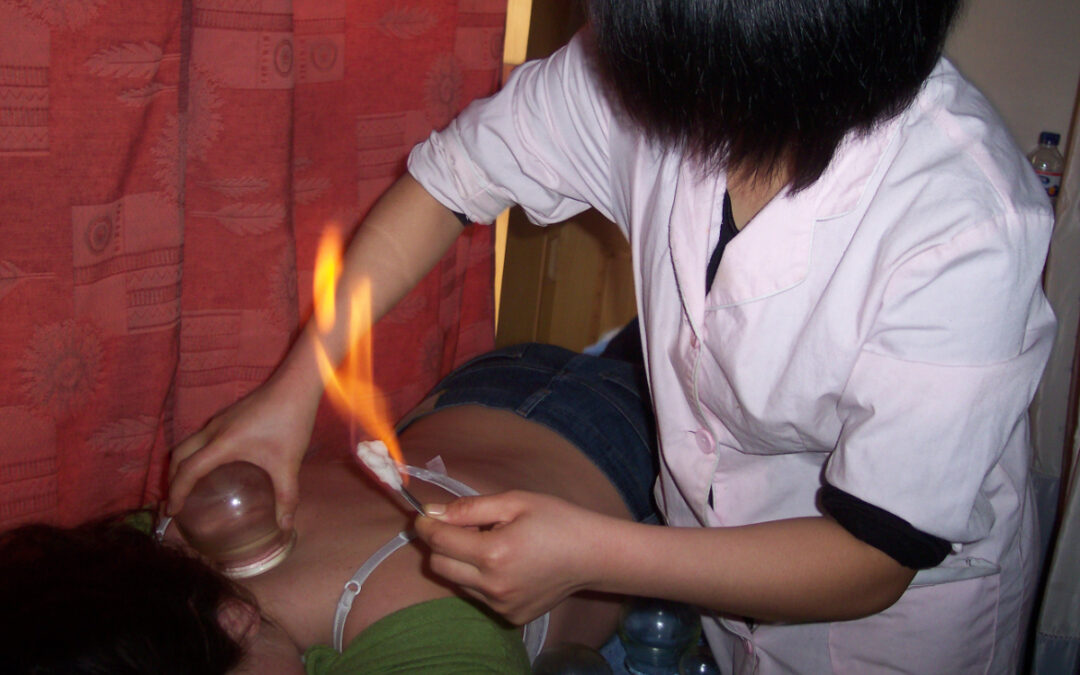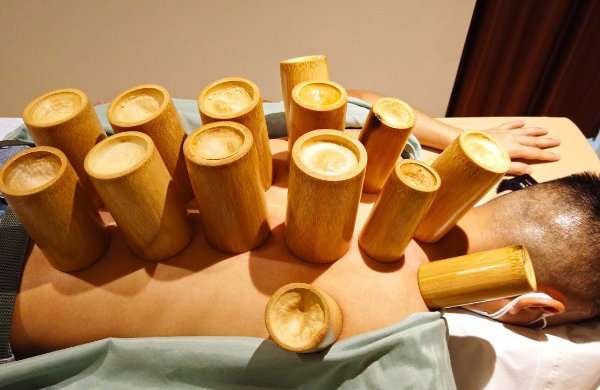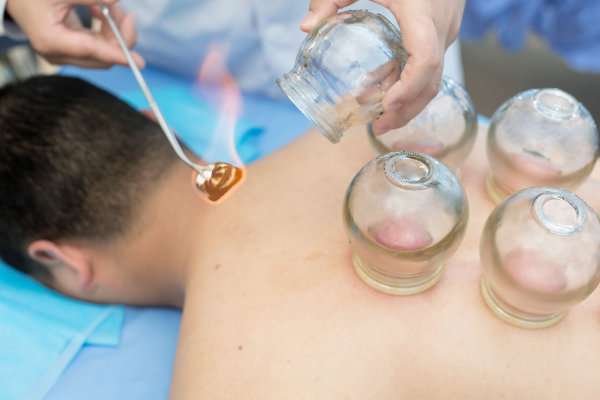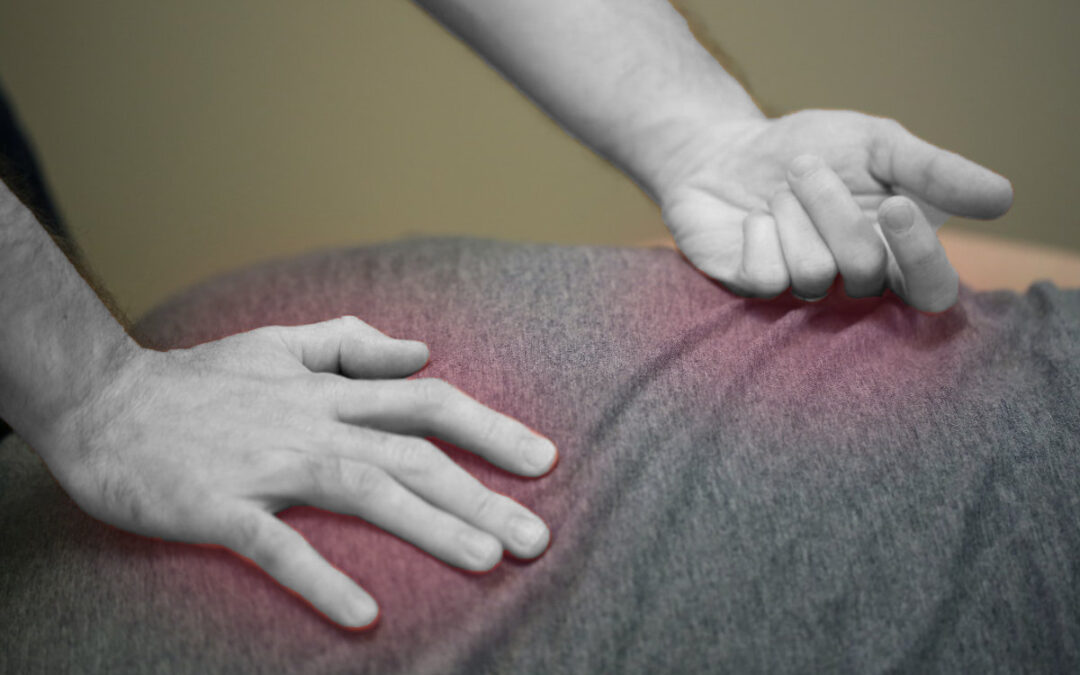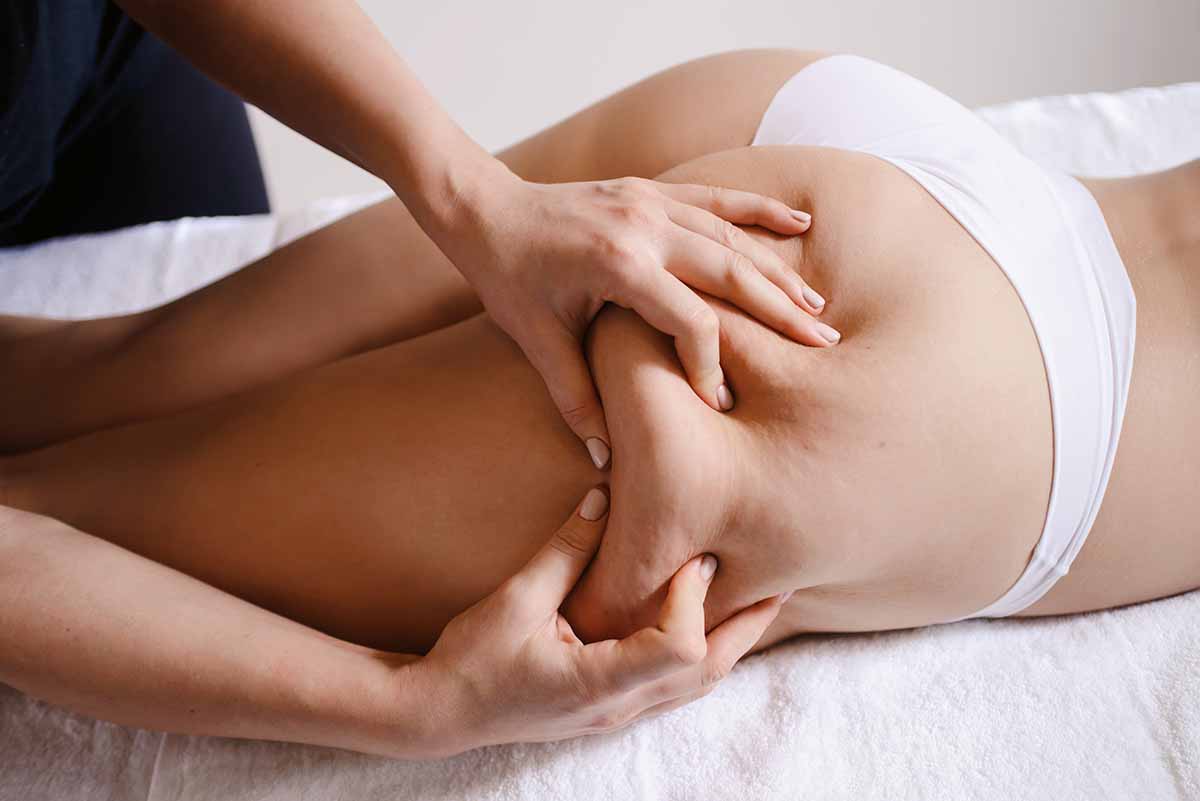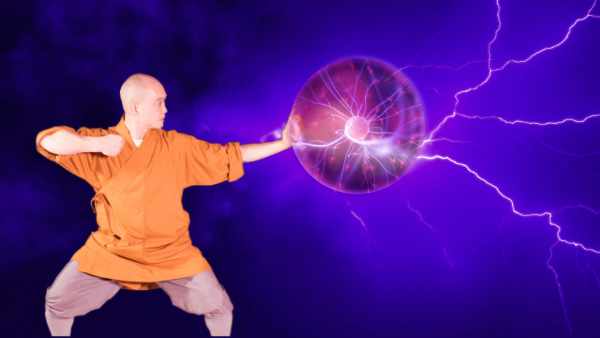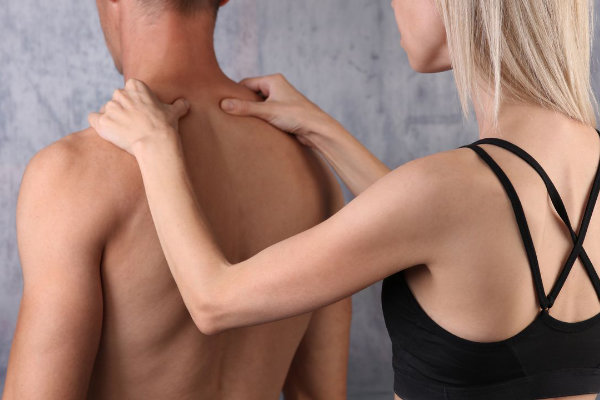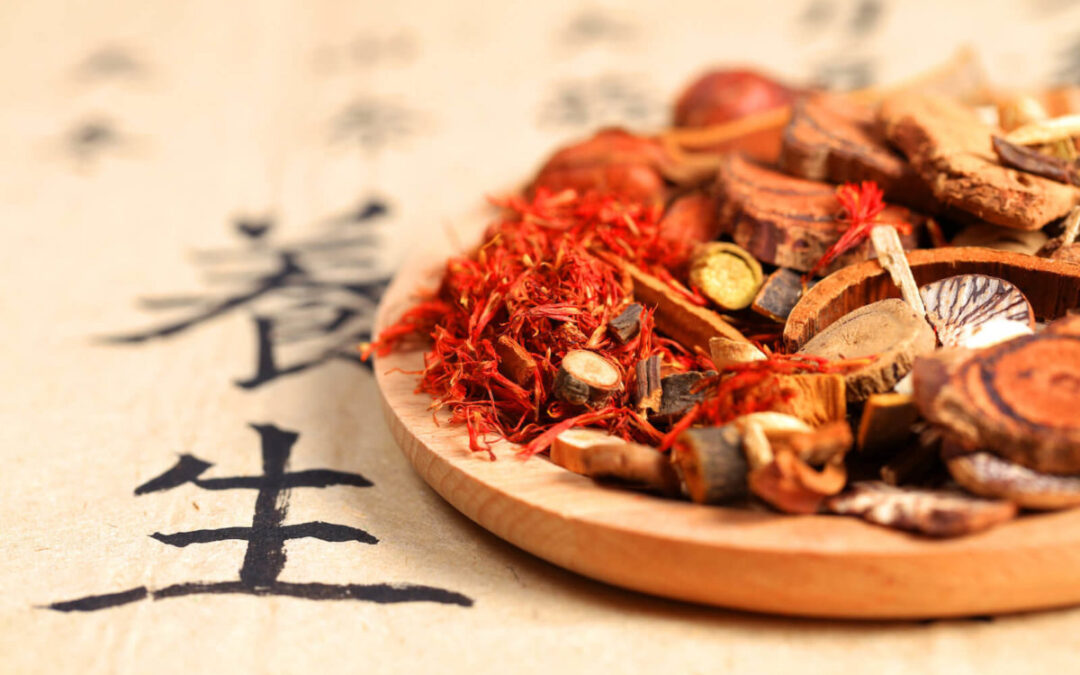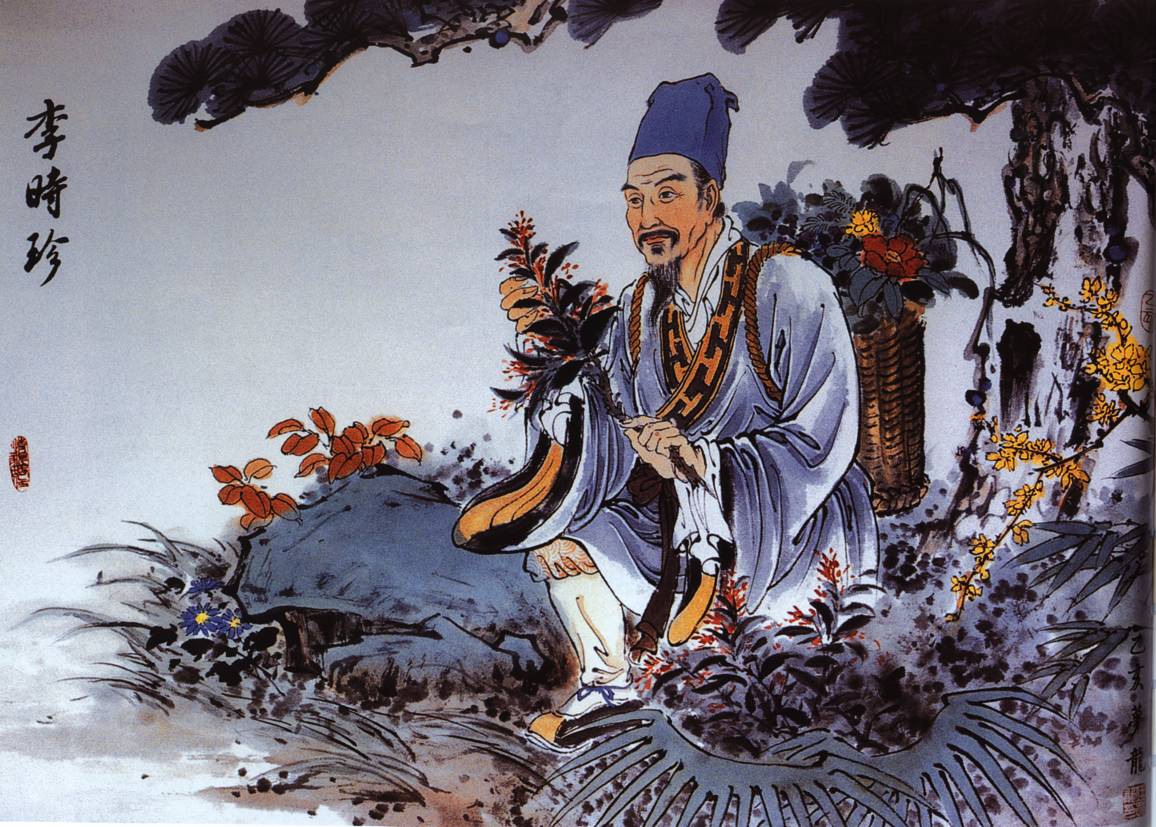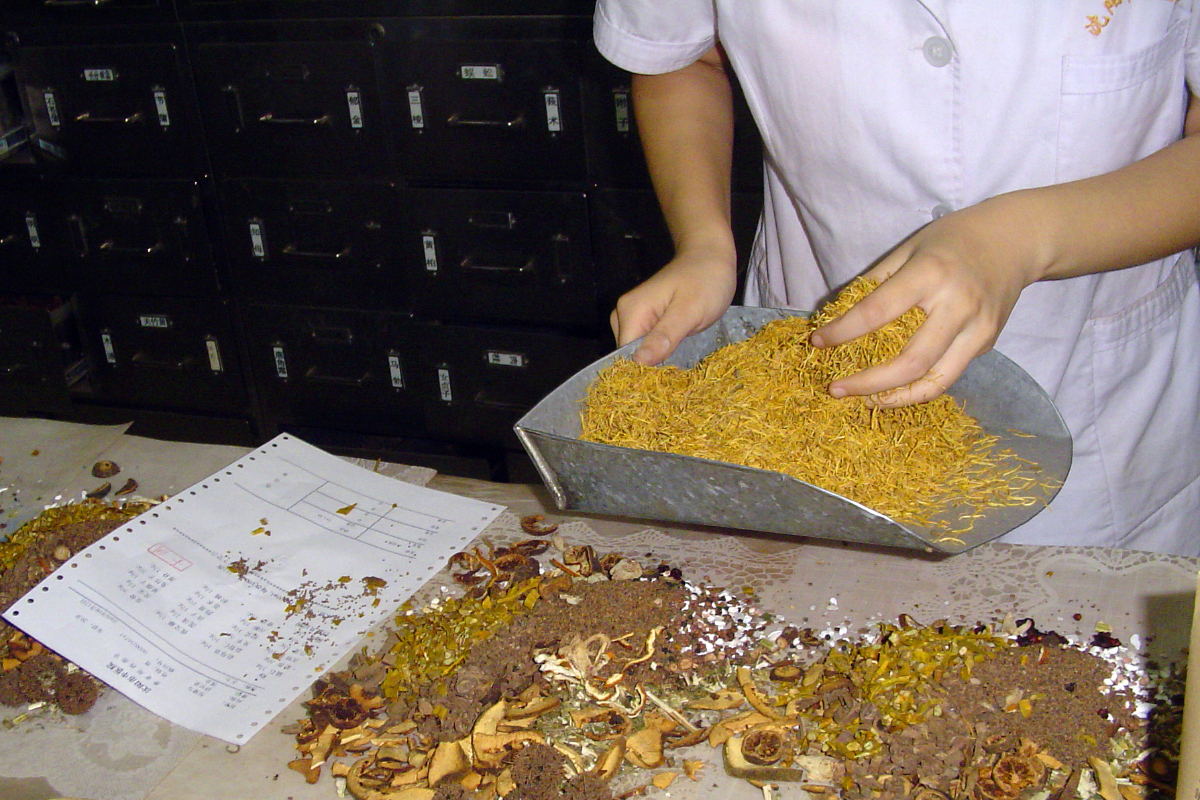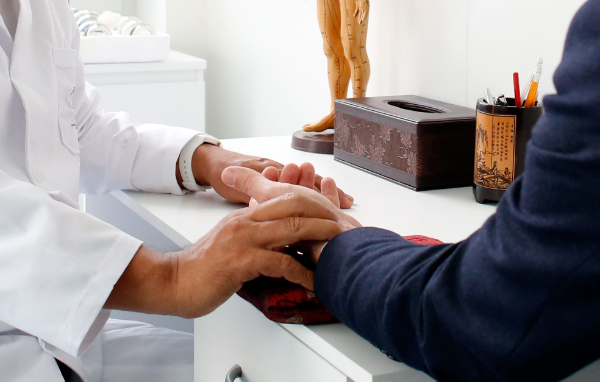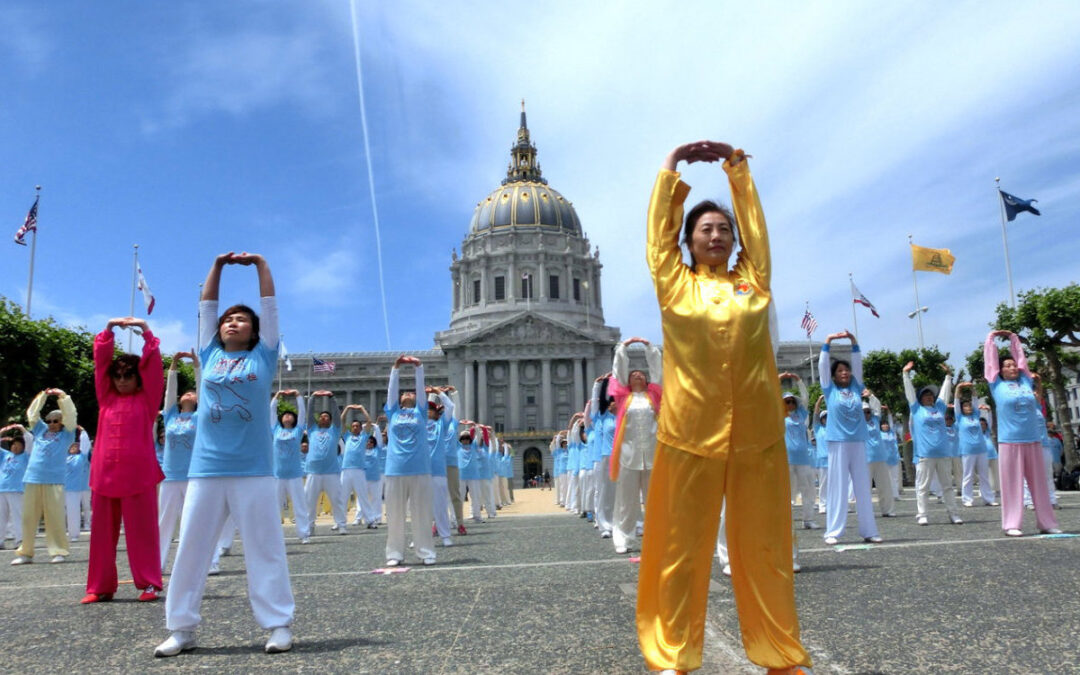
Bā Duàn Jǐn : Supporting the sky
Eight Pieces of Brocade Qi Gong, No. 1
This article is the first in a series of eight, each dealing with an exercise from the suite known as Ba Duan Jin or Eight Pieces of Brocade, one of the best-known and oldest forms of qi gong (see box below).
The form of Ba Duan Jin we teach is widely practised around the world today, and is accessible to all ages. It is an excellent complement to our therapies. Practised every day, it significantly improves health. To begin with, we recommend practising with a Qi gong master to avoid any energy imbalance. Qi gong is extremely powerful.
雙手托天 – Supporting the Sky with Your Hands
The first exercise of the Eight Pieces of Brocade is called Liǎngshǒu tuō tiān lǐ Sān Jiāo (两手托天立三交), which literally means “Supporting the Sky with Your Hands Regulates the Three Heaters.”
This exercise improves the overall circulation of Qi. Raising the arms helps to unblock the meridians and promotes a more fluid circulation of vital energy, which in turn contributes to improved health.
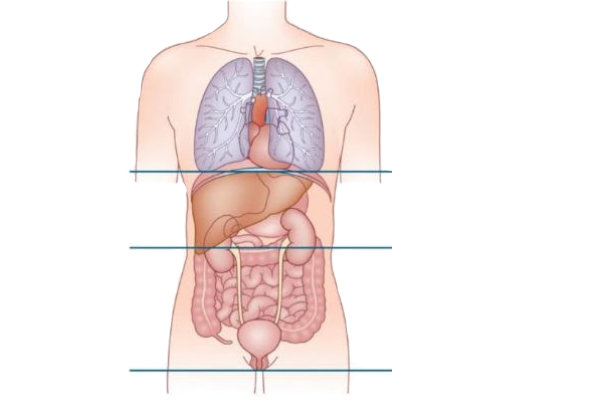
By focusing on raising the arms, we open and stimulate the San Jiao (Three Heaters) meridian. Thanks to its action on this meridian, this exercise normalizes the functions of respiration, digestion, and elimination.
The three heaters, or three burners, that give this meridian its name are:
- The upper heater, located in the rib cage, which includes the Heart and Lungs;
- The middle heater, located between the diaphragm and the navel, which includes the spleen and stomach;
- The lower heater, located between the navel and the pubis, which includes the liver, kidneys, large intestine, small intestine, and bladder.
Health benefits
Here are some of the medical aspects of this practice. Qi gong in general relieves physical fatigue and soothes the mind.
- Strengthening arms and shoulders:
By regularly raising the arms, this practice can help strengthen the muscles of the arms and shoulders, which can be beneficial for people suffering from pain or stiffness in these areas.
- Relaxation and stress reduction:
Qi Gong is known for its soothing effects on the nervous system. Controlled breathing and slow movements promote relaxation, which can help reduce stress and anxiety.
- Improved posture and alignment:
This form of Qi Gong encourages upright posture and correct body alignment, helping to alleviate postural problems and associated pain. For example, it can help correct dorsal kyphosis.
- Stimulation of the lymphatic system:
The gentle, slow movements of Qi Gong stimulate the lymphatic system, promoting the elimination of toxins and waste products from the body.
- Promotes blood circulation:
By increasing the activity of the arms and shoulders, this form of Qi Gong can also contribute to better blood circulation.
“Supporting the Sky”: practice
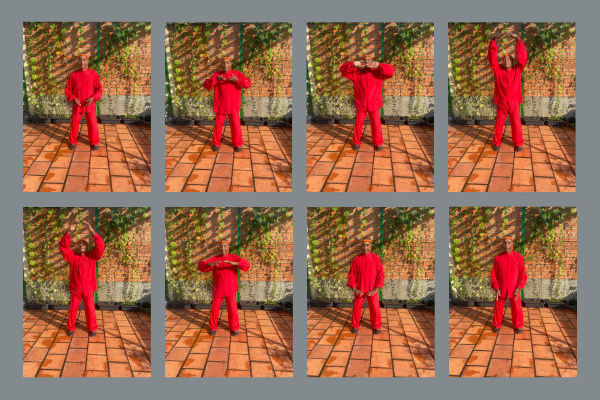
Preparation:
We recommend starting with simple movements and practising them regularly to learn to feel the flow of qi circulating in the body.
To practice Qi Gong well, you need to be regular, relaxed and not block the Qi. Breathing is slow, regular and abdominal. Loose-fitting clothing is recommended.
Legs slightly apart. Knees unclenched, arms hanging at your sides. The head is straight, in line with the trunk. This means that my posture allows me to remain relaxed on my feet, with the weight of my body distributed over the whole foot. I’m neither slightly forward nor slightly back. The gaze is frank and looks straight ahead, and far away (even if I’m in front of a wall).
Exercise:
- Hands cupped below the navel as you exhale.
- In a long, very slow inhale, the hands, palms up, rise in an extremely relaxed manner, as if they were being sucked upwards by themselves.
- Once at heart level, the palms turn to continue their upward ascent, as if pushing the sky. The shoulders remain relaxed.
- The gaze follows the palms without ever tilting the head up or down. Only the eyes move.
- Finally, at the end of the inhale, the hands support the sky, the arms remain slightly bent. Then the hands are reversed again, as if to bring Heaven’s energy back to the abdomen. All in a delicate, harmonious movement.
- Now begins a long, slow descent towards the abdomen, punctuated by the exhalation.
- Once again below the navel, the palms turn harmoniously to begin the next cycle. At no point is there a break, or a change of rhythm.
At the beginning, the practitioner can practice the ascent of the arms on an inhale plus exhale, and the same for the descent. Over time, the practitioner slows down his breathing and thus the rhythm of his routine. In Qi gong, slowness and harmony are the key to efficiency!
Ba Duan Jin, or the Eight Pieces of Brocade
Ba Duan Jin is one of the oldest and best-known forms of qigong. It consists of a series of eight exercises. There are around a hundred different versions, including the one practiced at the Shaolin Temple. Ba Duan Jin is also known as the Eight Pieces of Brocade, in reference to the long brocade coats—a silk fabric embellished with gold and silver embroidery—worn by dignitaries of the Chinese empire. These coats are a symbol of good health.
The exact origin of Ba Duan Jin is unknown, although legend has it that Bodhidharma developed it in the 5th century at the Shaolin Monastery. The northern form is known to have been practiced by the famous general, calligrapher, and poet Yue Fei (岳飛), who lived in the 12th century during the Song Dynasty. He developed the Eight Pieces of Brocade to strengthen the will, courage, and health of his soldiers. This practice improves immunity and develops inner calm and the strength to act in life. The horse stance, which is found several times in Ba Duan Jin, is particularly conducive to developing this strength, self-awareness, and determination.
